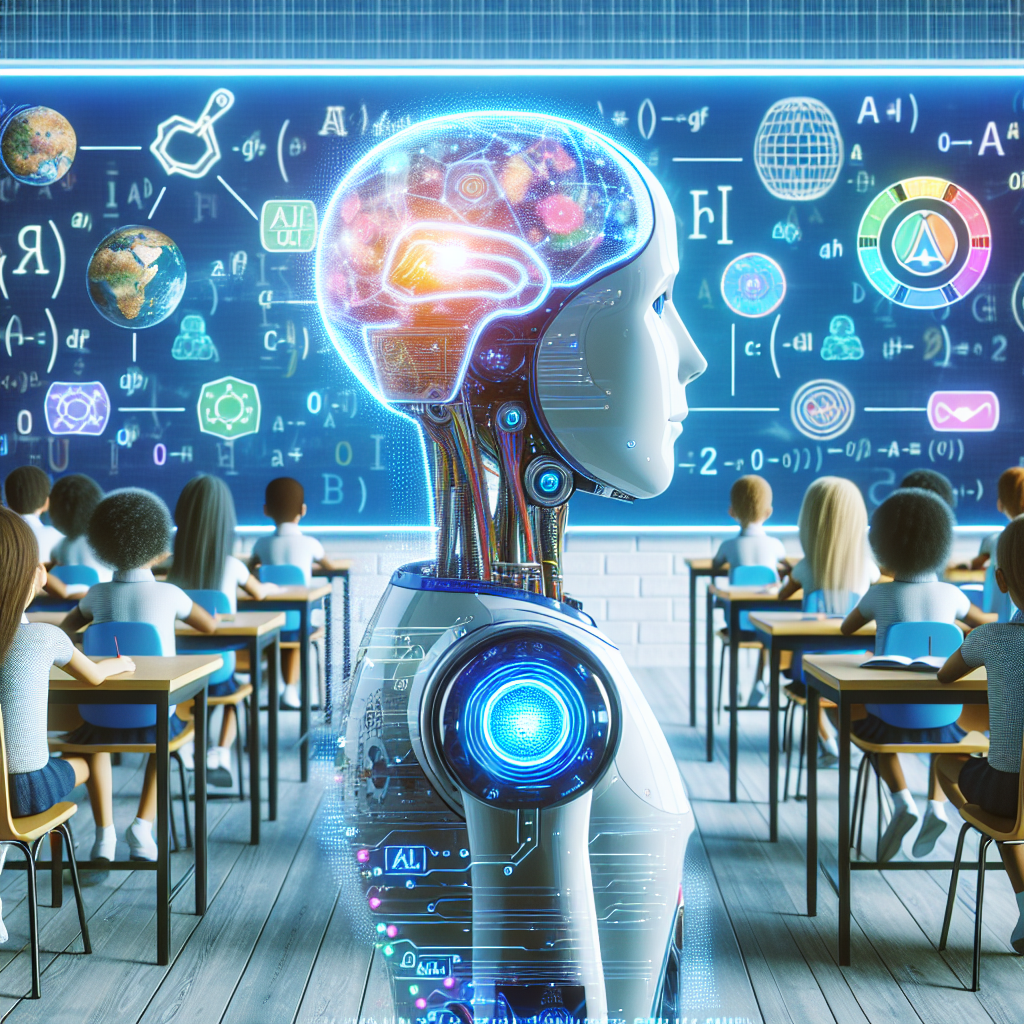Artificial General Intelligence (AGI) has the potential to revolutionize the field of education by enhancing learning experiences and outcomes for students. AGI refers to the ability of a machine to understand and learn any intellectual task that a human being can. This type of artificial intelligence goes beyond narrow tasks and can adapt to new situations and tasks without human intervention.
In the field of education, AGI can be used to personalize learning experiences, provide instant feedback, and support teachers in delivering high-quality instruction. This article will explore the benefits of AGI in education, discuss its potential applications, and address common questions about this technology.
Benefits of AGI in Education
1. Personalized Learning: AGI can analyze students’ learning preferences, strengths, and weaknesses to create personalized learning paths. By adapting instruction to individual needs, students can learn at their own pace and achieve better outcomes.
2. Instant Feedback: AGI can provide immediate feedback on students’ performance, allowing them to identify areas for improvement and make corrections in real-time. This timely feedback can help students stay on track and make progress more quickly.
3. Adaptive Learning: AGI can adjust the difficulty level of learning tasks based on students’ progress and performance. This adaptive learning approach ensures that students are challenged at the right level and can reach their full potential.
4. Support for Teachers: AGI can assist teachers in creating lesson plans, grading assignments, and monitoring student progress. By automating routine tasks, teachers can focus on providing personalized support and guidance to students.
5. Enhanced Collaboration: AGI can facilitate collaboration among students by creating virtual study groups, organizing group projects, and providing communication tools. This collaborative learning environment can improve students’ social skills and teamwork abilities.
Potential Applications of AGI in Education
1. Intelligent Tutoring Systems: AGI can be used to develop intelligent tutoring systems that provide personalized instruction to students. These systems can adapt to students’ learning needs and preferences, offering individualized support and feedback.
2. Virtual Reality Learning Environments: AGI can create immersive virtual reality learning environments that simulate real-world situations and scenarios. These environments can engage students in hands-on learning experiences and enhance their understanding of complex concepts.
3. Data Analytics: AGI can analyze large amounts of educational data to identify trends, patterns, and insights. This data-driven approach can help educators make informed decisions about curriculum design, instructional strategies, and student support services.
4. Natural Language Processing: AGI can understand and generate human language, enabling students to interact with educational content through speech and text. This natural language processing technology can facilitate communication and collaboration in online learning environments.
5. Cognitive Modeling: AGI can simulate human cognitive processes to understand how students learn and retain information. By modeling cognitive functions such as memory, attention, and problem-solving, educators can design more effective learning experiences.
FAQs about AGI in Education
Q: How does AGI differ from other types of artificial intelligence?
A: AGI is distinguished by its ability to perform any intellectual task that a human can, whereas other types of artificial intelligence are designed for specific tasks or domains. AGI is more versatile and adaptable, making it suitable for a wide range of applications in education.
Q: Will AGI replace teachers in the classroom?
A: AGI is meant to augment, not replace, teachers in the classroom. While AGI can automate routine tasks and provide personalized support to students, teachers play a critical role in facilitating learning, fostering creativity, and building relationships with students.
Q: How can educators prepare for the integration of AGI in education?
A: Educators can prepare for the integration of AGI by familiarizing themselves with the technology, exploring its potential applications, and collaborating with experts in artificial intelligence. Professional development opportunities and training programs can help educators develop the skills and knowledge needed to leverage AGI effectively in the classroom.
Q: What are the ethical considerations of using AGI in education?
A: Ethical considerations of using AGI in education include issues related to data privacy, algorithmic bias, and accountability. Educators and policymakers must ensure that AGI is used responsibly, transparently, and equitably to avoid potential harms and unintended consequences.
Q: How can AGI promote equity and inclusion in education?
A: AGI can promote equity and inclusion in education by providing personalized support to students with diverse learning needs, adapting instruction to individual preferences, and fostering collaboration among students from different backgrounds. By addressing barriers to learning and participation, AGI can help create a more inclusive learning environment for all students.
In conclusion, AGI has the potential to enhance learning experiences and outcomes in education by personalizing instruction, providing instant feedback, and supporting teachers in delivering high-quality instruction. By leveraging the capabilities of AGI, educators can create more engaging, interactive, and effective learning environments for students. As this technology continues to evolve, it is essential for educators to stay informed, prepared, and proactive in integrating AGI into their teaching practices.

